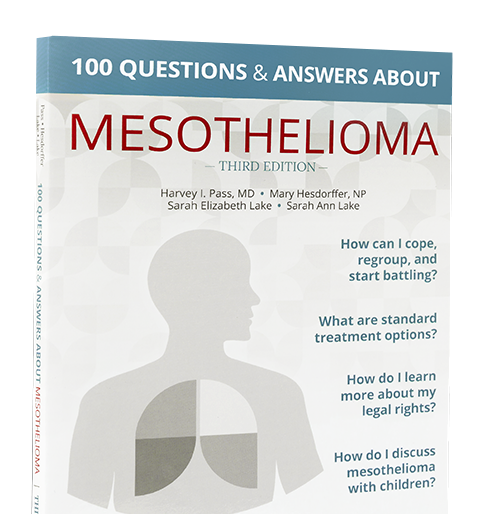Could a newly-identified biomarker end mesothelioma resistance to chemotherapy? Researchers at VU University Medical Center say yes. In the study titled “Role of proton-coupled folate transporter in pemetrexed-resistance of mesothelioma: clinical evidence and new pharmacological tools,” the team reported that thymidylate synthase (TS) has a predictive role in pemetrexed-treatment of mesothelioma.
Pemetrexed (trade name Alimta), is an anti-cancer ("antineoplastic" or "cytotoxic") chemotherapy drug, and is classified as an "antimetabolite." It is currently one of just two chemotherapy drugs specifically approved for the treatment of mesothelioma.
According to Chemocare, “antimetabolites are very similar to normal substances within the cell.” When the cells integrate substances such as pemetrexed into themselves during growth, “the cells lose the ability to divide.” Because they are cell-cycle specific, antimetabolites act on the cells at precise phases in the cells' replication cycle.
Antimetabolites are classified “according to the substances with which they interfere.” Pemetrexed is classified as an “antifolate” antimetabolite, so the drug wields its chemotherapeutic effect by “disrupting production of folate, which is essential for cell replication.”
In the study, researchers determined that:
- Pemetrexed-treated patients with low-PCFT had significantly lower rates of disease control, and shorter overall-survival (OS), in both the test (N = 73, 11.3 vs. 20.1 months, P = 0.01) and validation (N = 51, 12.6 vs. 30.3 months, P = 0.02) cohorts. Multivariate analysis confirmed PCFT independent prognostic role.
- Low-PCFT protein levels were also associated with shorter OS. Patients with both low- PCFT and high-TS levels had the worst prognosis (OS, 5.5 months), whereas associations were neither found for RFC nor in pemetrexed-untreated patients.
- PCFT silencing reduced pemetrexed sensitivity, while 5-aza-2'-deoxycytidine overcame resistance.
The team concluded that, “these findings identify for the first time PCFT as a novel mesothelioma prognostic biomarker, prompting prospective trials for its validation. Moreover, preclinical data suggest that targeting PCFT-promoter methylation might eradicate pemetrexed-resistant cells characterized by low-PCFT expression.”
If you have been diagnosed with mesothelioma, talk to your doctor about the latest treatments for the disease and the many clinical trials being conducted right now for your specific type of mesothelioma.
Sources
Giovannetti, E., P. A. Zucali, and Y. G. Assaraf. "Role of Proton-coupled Folate Transporter in Pemetrexed-resistance of Mesothelioma: Clinical Evidence and New Pharmacological Tools." Annals of Oncology. U.S. National Library of Medicine, 01 Sept. 2017. Web. 16 Oct. 2017.
"Pemetrexed." Chemocare.com. Cleveland Clinic, 18 June 2017. Web. 16 Oct. 2017.





